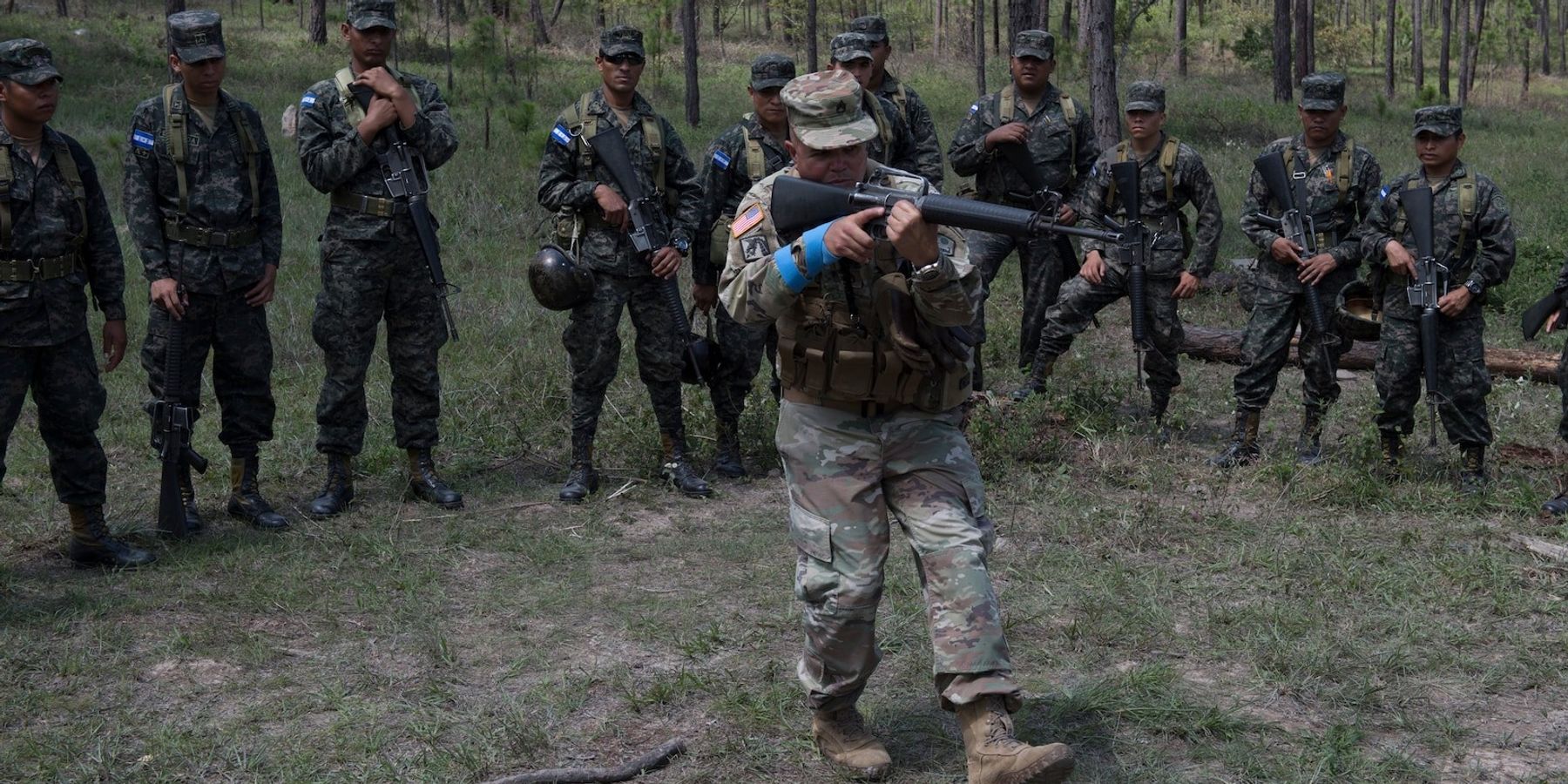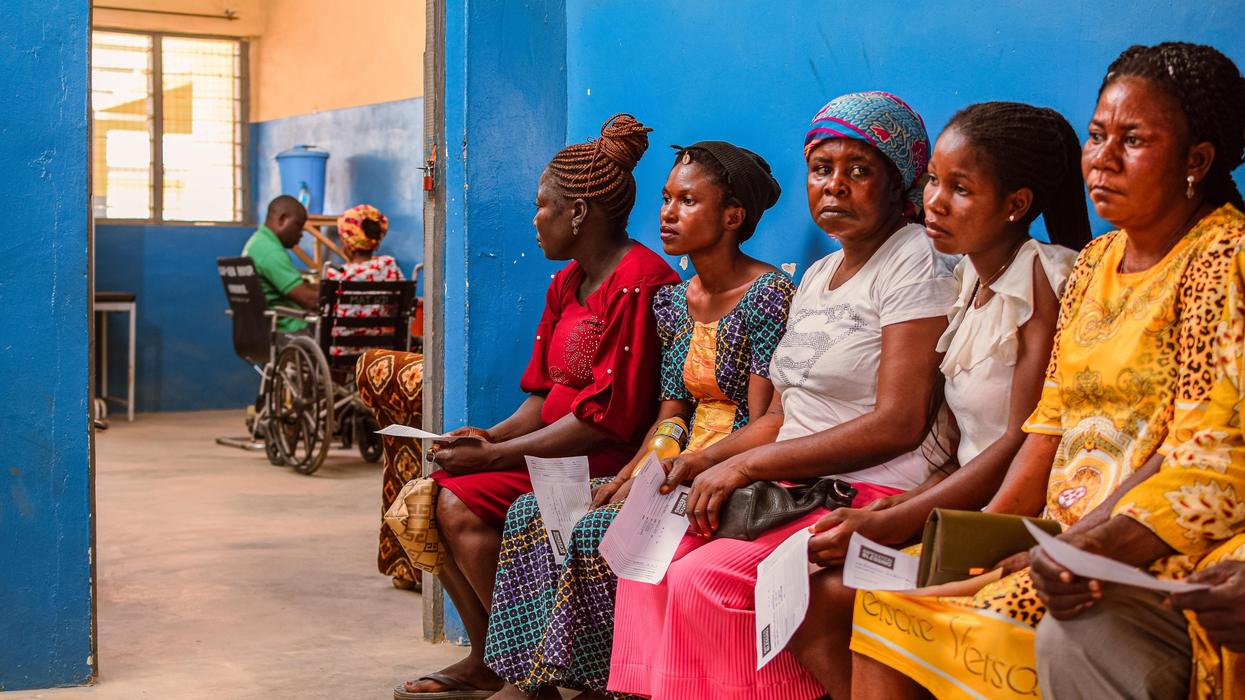Honduran President Xiomara Castro recently announced that she is prepared to remove American troops from the country’s Soto Cano Air Base if President Donald Trump implements his proposed mass deportation policies.
She is the first Latin American head of state to threaten the new American president over his deportation plans, which could expel up to 250,000 Hondurans from the U.S. this year according to Deputy Foreign Minister Tony Garcia.
“In the face of a hostile attitude of mass expulsion of our brothers, we would have to consider a change in our cooperation policies with the United States, especially in the military arena,” Castro said.
Honduras is not well prepared to re-absorb the deportees, most of whom left due to a combination of widespread poverty, climate disasters, and the persistent threat of gang violence. But what would kicking the U.S. military out of Honduras mean for Washington?
If Castro follows through with her pledge, she will leave the United States without access to its largest military base in Central America. Soto Cano hosts Joint Task Force-Bravo, an arm of the U.S. Southern Command that works to provide humanitarian aid, counter drug trafficking, and coordinate regional security operations across Central America. It houses more than 500 U.S. troops and 3 different units: the Army Forces Joint Support Battalion, the 288th Aviation Regiment, and the 612th Air Base Squadron.
When the U.S. first began using the base in the 1980s, it did so for a narrower set of objectives.
Fearing the spread of communism in Latin America during the Cold War, Ronald Reagan made the toppling of Nicaragua’s left-wing Sandinista government a key priority when he came to office in 1981. Reagan’s administration spent millions of dollars arming anti-communist Nicaraguan militias which the U.S. military helped train at its bases in neighboring Honduras.
The U.S.-backed rebel militias went on to commit serious human rights abuses in a conflict that fueled instability throughout much of Central America and led to a substantial exodus of migrants to the United States. In Honduras, some villages along the border with Nicaragua were caught in the crossfire.
Soto Cano is a relic from when Washington viewed Honduras as a key instrument of American foreign policy (some U.S. government officials at the time called the country “U.S.S. Honduras”). For President Castro, the legacy of America’s military presence in the country is also personal. Her husband Manuel Zelaya served as president of Honduras from 2006 until 2009, when he was deposed in a coup by U.S.-trained officers. The State Department, then under Secretary Hillary Clinton, refused to call it a “coup” and actively prevented restoring Zelaya’s authority. In her 2014 memoir “Hard Choices” she wrote that energy was instead directed “to restore order in Honduras and ensure that free and fair elections could be held quickly and legitimately, which would render the question of Zelaya moot.”
There is no evidence that the Obama administration was directly involved in planning the coup, but Honduras’s military forcibly brought Zelaya to the Soto Cano base before putting him on a plane to Costa Rica. According to David Vine, a professor at American University who studies U.S. bases abroad, this action has raised suspicions that the United States was indeed involved.
Although top U.S. officials condemned Zelaya’s ouster, Clinton quickly recognized the new military government as legitimate and eventually increased funding for its security forces despite allegations that they were engaged in “death-squad style killings.” From there, a 13-year period of corrupt right-wing governance in Honduras began, characterized by civil unrest, increased privatization, repression of political activists, and corruption.
“My understanding is that the country became more violent, more unequal, and less just,” said Vine.
Washington supported Castro’s predecessor, Juan Orlando Hernandez, until it didn’t. After leaving office, the U.S. Department of Justice charged Hernandez in 2022 in a massive cocaine trafficking scheme that had been ongoing during his tenure. He was convicted and sentenced to 45 years in prison in June 2024.
Xiomara Castro ran for president on a democratic socialist platform and was elected in 2022, marking a new chapter of political leadership. If her recent announcement is any indication, Honduras might also now be entering a new chapter in its relationship with the United States.
Castro’s pledge is not without risks. For one, it potentially puts Honduras at odds with its biggest trading partner. According to the U.S. Embassy of Honduras, the country exports $5.2 billion worth of goods annually to the United States and U.S. foreign direct investment in Honduras totals more than $1 billion per year. President Trump has already threatened to impose tariffs on Canada and Mexico over immigration disputes, and it’s possible he could do the same in this case.
The U.S. military also argues that it needs Soto Cano to provide disaster relief in a country where the effects of poverty and climate change are deeply felt. While the U.S. government has recently used the base to deliver humanitarian aid, Vine pointed out that America routinely delivers aid in other countries where it does not control a military base.
Meanwhile, more than 60% of Honduras’s population lives in poverty and remittances from Hondurans living abroad make up 27% of the country’s GDP, the highest of any country in Latin America. Hondurans in rural areas are especially poor — 80% of them live on less than 7$ per day.
Compounding this poverty in rural areas is the looming threat of climate change. In 2020 a pair of category 4 hurricanes made landfall within days of each other, displacing hundreds of thousands of people, flooding entire towns, and destroying vital transportation infrastructure connecting remote regions with the rest of the country.
Honduran emigrants also cite widespread violence as one of their main reasons for leaving. Honduras has the second highest homicide rate among nations in Latin America and the Caribbean. Extortion is widespread and citizens are routinely killed for refusing to pay money to street gangs such as MS-13.
Trump has given no indication so far that the prospect of military expulsion will stop him from carrying out mass deportations. In response to Castro’s statements, Trump transition team member Brian Hughes offered few specifics.
“The Trump administration looks forward to engaging our Latin American partners to ensure our southern border is secure and illegal immigrants can be returned to their country of origin.”
- With Rubio, Waltz, a harder line on Latin America looms ›
- The elusive Chinese boogeyman in Latin America ›
- The absolute wrong way to deploy US military on the border | Responsible Statecraft ›
















